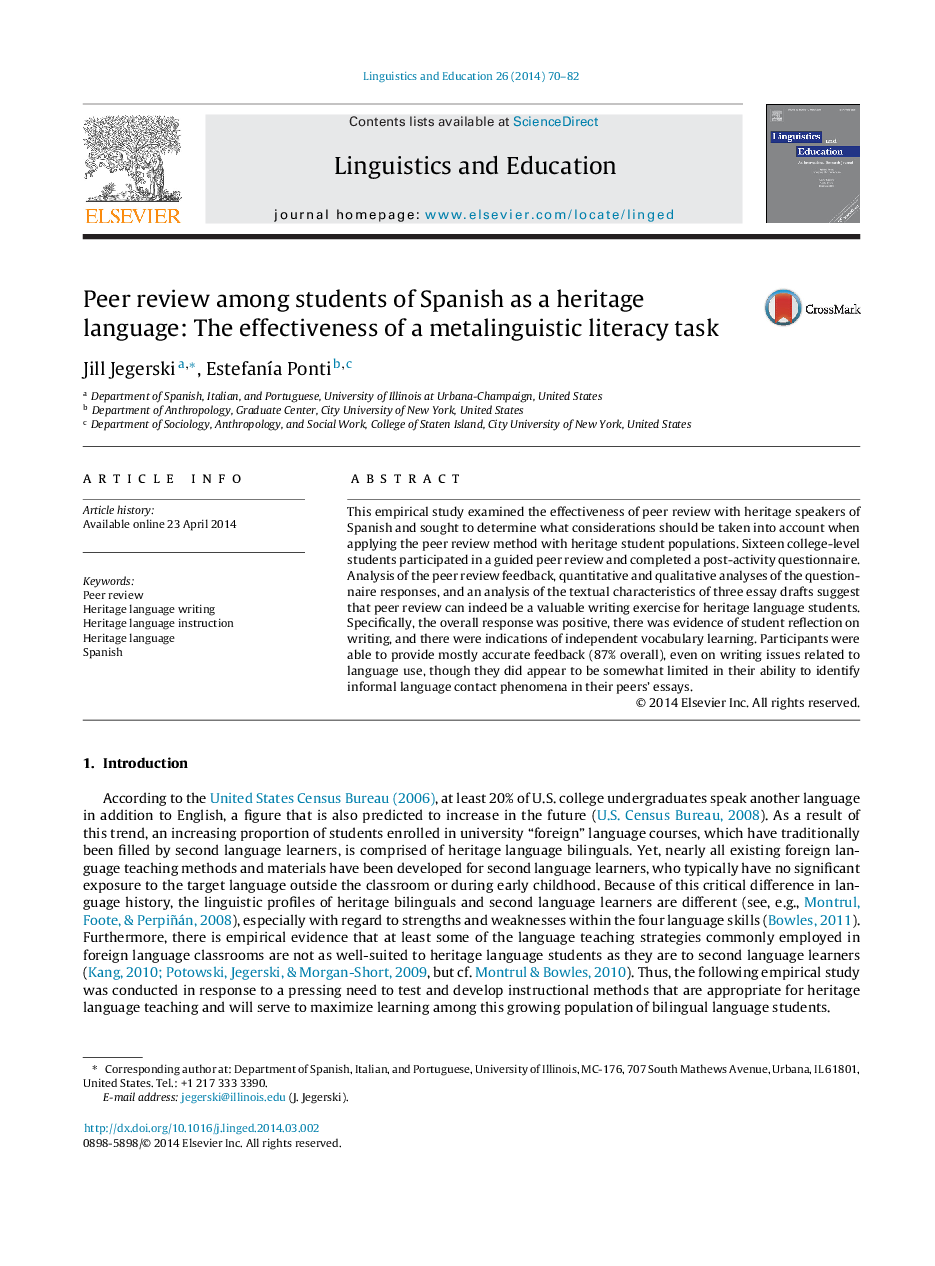| Article ID | Journal | Published Year | Pages | File Type |
|---|---|---|---|---|
| 366141 | Linguistics and Education | 2014 | 13 Pages |
•Overall, HL students provided accurate feedback on their peers’ essays.•They commented more on language use than on content and organization.•They also commented less on informal language contact phenomena.•They preferred professor feedback to peer feedback on their writing.•Essay word length improved, but not syntactic complexity or lexical density.
This empirical study examined the effectiveness of peer review with heritage speakers of Spanish and sought to determine what considerations should be taken into account when applying the peer review method with heritage student populations. Sixteen college-level students participated in a guided peer review and completed a post-activity questionnaire. Analysis of the peer review feedback, quantitative and qualitative analyses of the questionnaire responses, and an analysis of the textual characteristics of three essay drafts suggest that peer review can indeed be a valuable writing exercise for heritage language students. Specifically, the overall response was positive, there was evidence of student reflection on writing, and there were indications of independent vocabulary learning. Participants were able to provide mostly accurate feedback (87% overall), even on writing issues related to language use, though they did appear to be somewhat limited in their ability to identify informal language contact phenomena in their peers’ essays.
